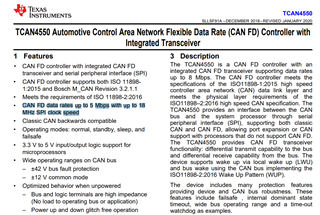Hi Team,
I'm using the above part in my project. As the datasheet suggests, the CAN data rate supports up to 5 Mbps with up to an 18 MHz SPI clock speed. But I observed that it's working only up to 3 Mbps.
Kindly provide your input.
Regards,
Chithraj S


